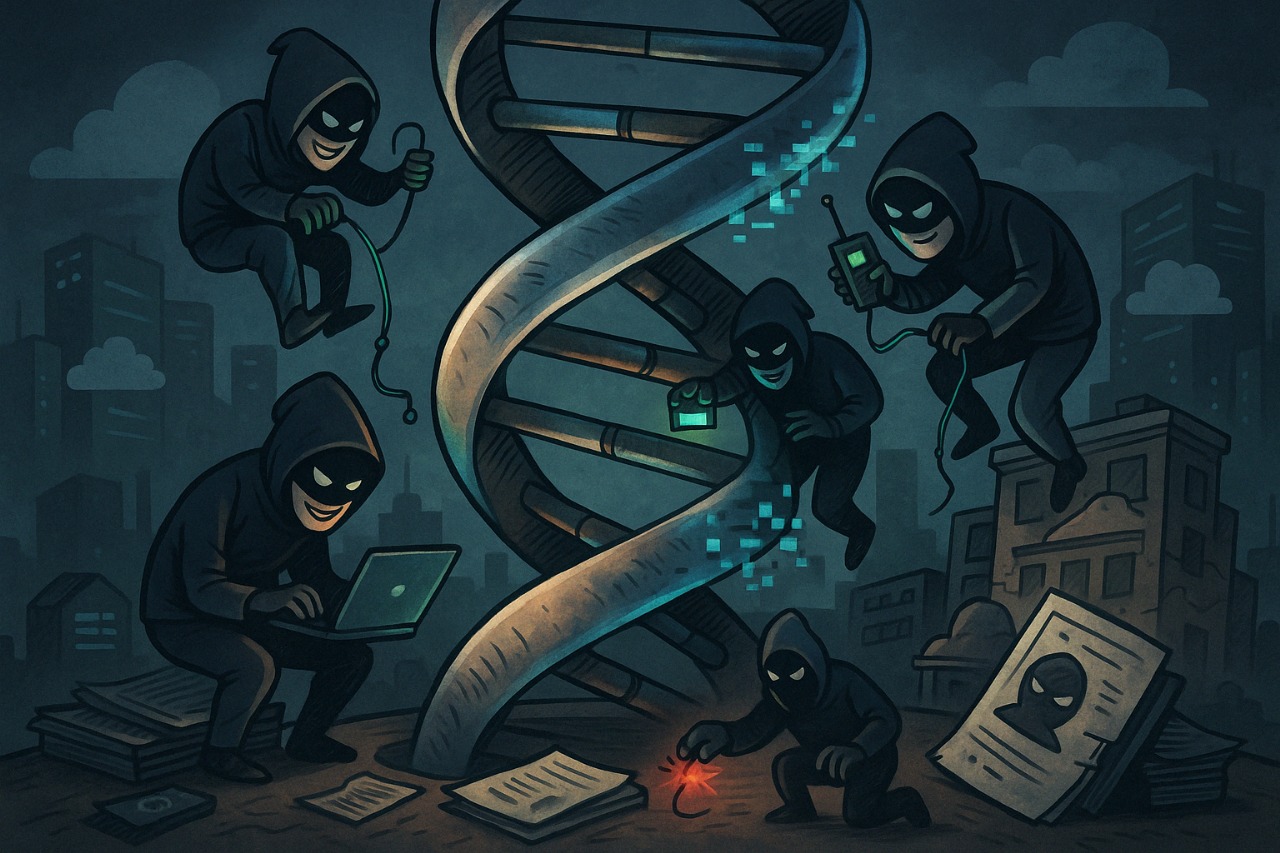As the digital revolution transforms modern medicine, a less visible but equally powerful frontier is emerging—one that involves code of a different kind: DNA. The same sequences used to fight cancer, personalize treatment, and trace ancestry are now the focus of a growing cyber threat.
A recent study conducted by Dr. Anjum and his team at the University of Portsmouth has issued a stark warning: cybercriminals could potentially target and exploit DNA data, particularly through the vulnerabilities of widely adopted Next-Generation Sequencing (NGS) platforms.
ALSO READ: Call for Cyber Experts: Join FCRF Academy as Trainers and Course Creators
These platforms digitize genetic samples and transfer them to cloud-based systems for analysis—a practice that, while revolutionizing biotechnology, has exposed the field to the risks familiar in other domains of cybersecurity. The threat isn’t just theoretical. With the help of artificial intelligence, bad actors could manipulate DNA data for blackmail, identity tracing, or even weaponize synthetic biology.
The Unseen Cyber-Biosecurity Crisis
While conventional cybersecurity systems focus on emails, servers, or bank accounts, scientists are now sounding the alarm about cyber-biosecurity—a lesser-known discipline that deals with protecting the vast databases of genetic material.
“Protecting genomic data isn’t just about encryption—it’s about anticipating attacks that don’t yet exist,” said Dr. Anjum. His research emphasized the emerging threat of synthetic biology attacks, where malicious actors could alter or inject rogue DNA sequences into legitimate workflows.
The risks are manifold: hacked genetic databases could lead to identity theft on a cellular level, unauthorized DNA modification, or even forged genetic identities. Dr. Anjum’s team proposes that institutions must move beyond basic data protection and begin monitoring workflows for irregular behavior, using AI to predict and block anomalous activities.
Why Hackers Want Your Genes
Genomic data is more than just medical—it is identity. That makes it a high-value target. Experts point out that with the rise in precision medicine and global genetic databases, hackers have a financial and ideological incentive to infiltrate gene banks. They could demand ransom in return for deleting stolen data, create fraudulent health profiles, or reverse-engineer medical research.
Moreover, certain tools such as Bytespider—an AI web crawler allegedly linked to ByteDance—have shown how even benign technologies could be repurposed to collect or misuse genomic datasets.
Cybersecurity experts are calling for a multidisciplinary response: bringing together geneticists, data scientists, and infosec professionals to create a digital perimeter around biology’s most sensitive frontier. Initiatives may include mandatory data anonymization, digital watermarking of DNA sequences, and constant real-time monitoring for tampering.


